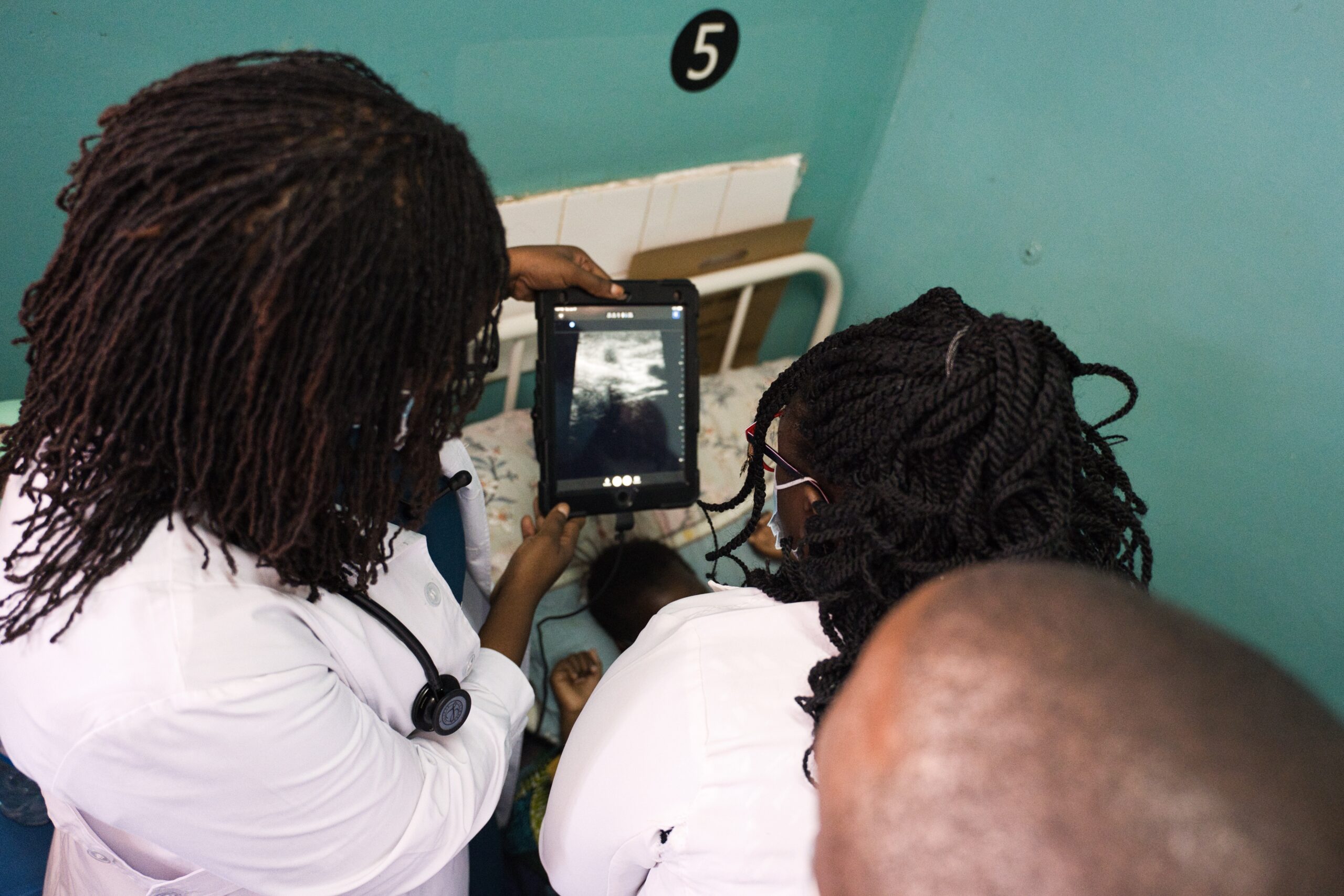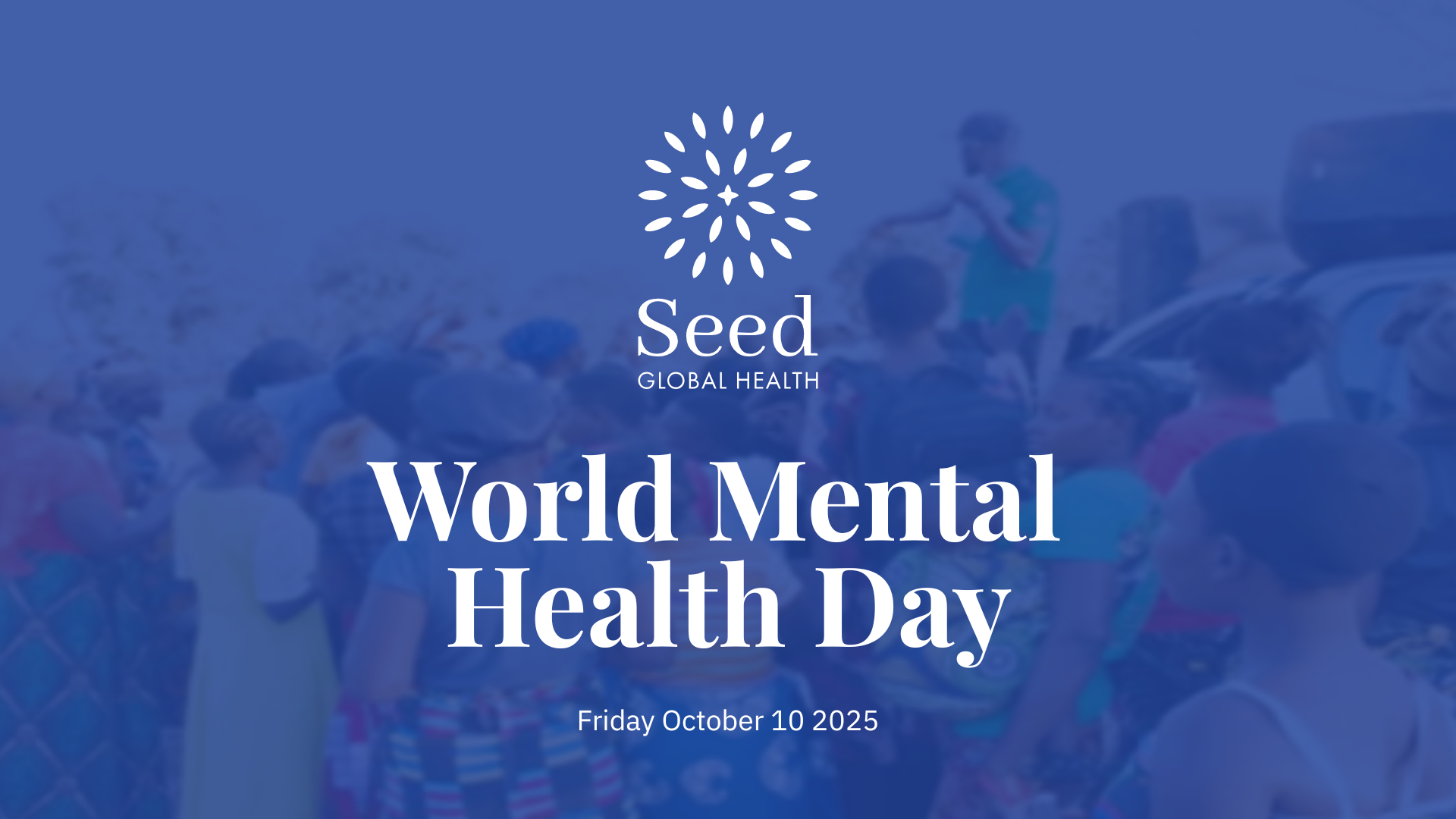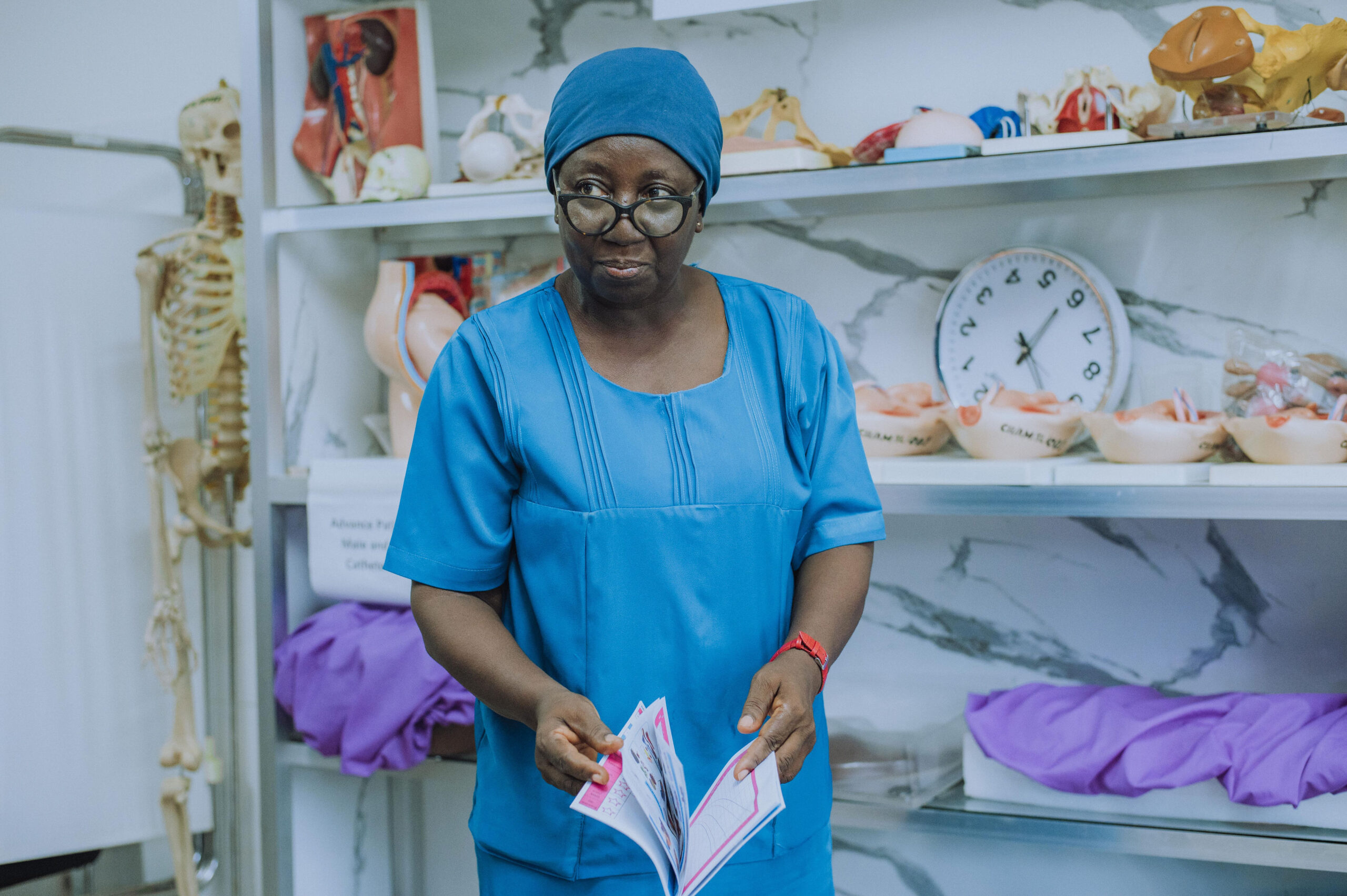
Fatmata is transforming midwifery in Sierra Leone through education and practice
Fatmata Janka Dabo grew up surrounded by nurses and midwives, commonly known as “sisters” in Sierra Leone. One of them was her aunt, Nurse Kobie, who often helped women give birth right in their home. Fatmata vividly remembers pregnant women from the neighborhood coming by to be examined.
She didn’t fully understand what her aunt was doing at the time, but she watched closely as the women were cared for and told when to return. “When they came back and walked out with their babies, it felt like my aunt performed a miracle,” she recalls.
Another of Fatmata’s aunts, Sister Belewa, studied midwifery and public health in the United Kingdom. When she returned to Sierra Leone, she became head of the antenatal clinic in Kenema. “When we visited her at work, she would be singing with the pregnant women, sharing messages about their health and how to care for their babies,” Fatmata recalls. “The way she engaged with the women amazed me. Those experiences inspired me to become a midwife.”
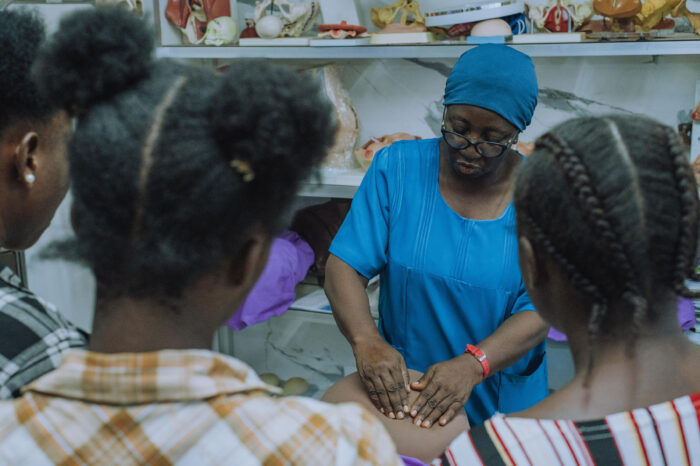
Fatmata began her career as a nurse before earning her certification in midwifery. She later completed a bachelor’s degree in midwifery and is now pursuing a master’s degree in educational administration and management.
A memorable moment in her career
Over her midwifery career of 35 years, one memory stands out.
One day while walking through the central business district in Freetown, Sierra Leone’s capital city, Fatmata was stopped by a non-speaking man. He used gestures to show her that the baby girl she had once helped deliver was now grown up. Fatmata remembers the interaction as unexpected, emotional, and heartwarming. A small crowd gathered, expressing their appreciation for the incredible work she had done. In a place where quality maternal care was not always guaranteed, Fatmata’s expertise had clearly left a mark, not just on the family, but on the entire community.
Fatmata’s experience is testament to how deeply people remember being treated with kindness and care, qualities she believes make a great midwife. She now passes on these values, along with her skills and expertise, to students at the School of Midwifery Bo (SOMBO), where she serves as the deputy head of school and a midwife educator. In addition to teaching, Fatmata continues to work as a midwife at Bo Government Hospital.
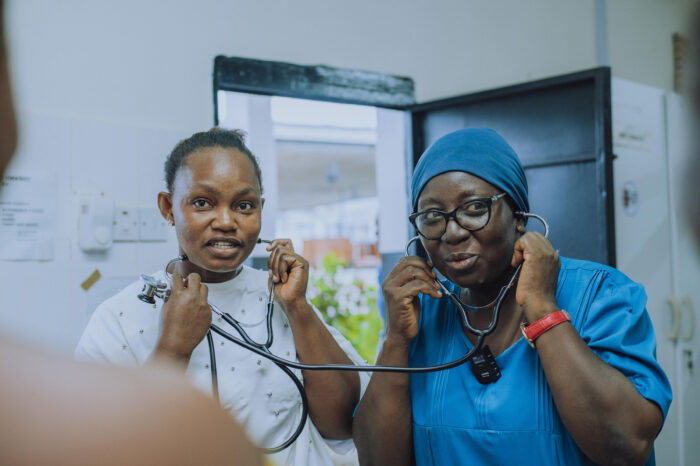
“Sierra Leone had a reputation where the moment a woman became pregnant, she was seen as being on a death list because it once had the highest maternal mortality ratio in the world,” she says. Fatmata knows that having more well-trained midwives in hospitals and communities is key to preventing maternal deaths.
The mission of SOMBO
SOMBO is one of four midwifery schools in Sierra Leone. It was established in 2017 to train more midwives and increase access to professional maternal health care.
According to the government’s Nursing and Midwifery Strategic Plan 2019-2023, fewer than 500 midwives are currently practicing in Sierra Leone, far short of the 3,000 needed to meet the country’s population needs. SOMBO’s mission is to reduce the country’s alarmingly high maternal and infant mortality by addressing this gap in skilled midwives.
The school currently runs two programs: one for community health nurses transitioning into midwifery, and another “direct entry” program for high school graduates.
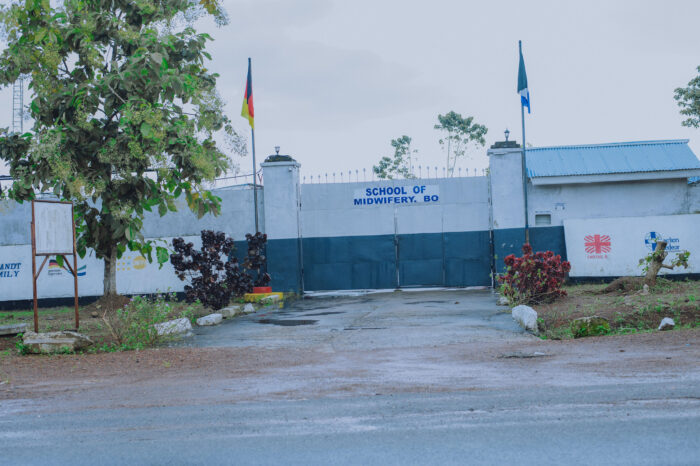
Through its partnership with SOMBO, Seed Global Health (Seed) provides several visiting faculty members to the school. The faculty spend about 25 percent of their time teaching skills in the classroom and the remaining 75 percent mentoring students and maternity staff in clinical settings at partner hospitals.
As a relatively new school, SOMBO faces the typical challenges of a start-up institution. Fatmata notes that there is a shortage of essential resources like up-to-date textbooks and training tools such as manikins, which are critical for delivering high-quality theoretical and practical instruction. Still, she remains hopeful. With strong, sustained partnerships like the one between SOMBO and Seed, she believes these challenges will be addressed over time.
Partnership in action
Fatmata says Seed’s partnership began at a critical time, when both Bo Government Hospital and SOMBO were facing severe staff shortages. Maternal deaths at the hospital were high, and SOMBO suffered a loss of a midwifery instructor, which left them overwhelmed.
“We had to manage both classroom teaching and clinical placements,” she explains. “The Seed visiting faculty helped ease that burden by supporting both the school and the hospital.”
Fatmata says the visiting faculty have enriched student learning in both the academic and clinical settings. By collaborating with SOMBO faculty, the visiting faculty helped identify and address gaps in the newly introduced direct entry curriculum. Additionally, the visiting faculty worked closely with the Ministry of Health to develop a national scope of practice for nurses and midwives.
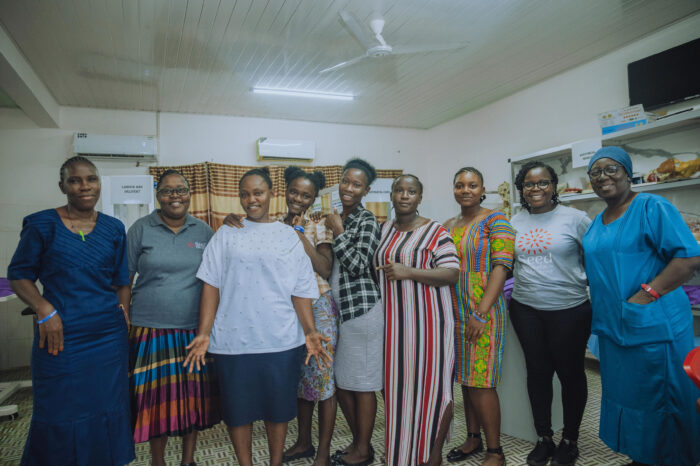
Looking ahead
More skilled midwives are entering the profession-SOMBO alone graduated 56 midwives last year, and these developments give Fatmata hope. During a recent World Health Day commemoration, Minister of Health Dr. Austin Demby announced a promising decline in Sierra Leone’s maternal mortality rate, from 443 to 354 deaths per 100,000 live births between 2020 and 2023.
“Every maternal death is one too many,” Fatmata says. “But this significant reduction shows progress. With continued training of highly skilled midwives, we can reach a point where no woman dies during childbirth.” She believes that expanding midwifery education will mean greater access to quality maternal care—not just in urban centers, but in the underserved rural areas where it’s needed most.
